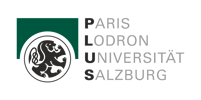The work placement can be undertaken with organisations in the media and communications sector at home and abroad. In general, work placements that are relevant to the profession are recognised as …
… in media or communication companies – publishing houses, broadcasters, communication agencies (PR, advertising, online) – with at least one relevantly trained and full-time supervising intern.
… in business enterprises with a designated own communication department and at least one relevantly trained and full-time supervising trainee manager.
In any case, all further placements are subject to individual examination and assessment. In principle, guidance/supervision by a suitably trained or designated person during the placement is required for recognition/approval. In particular, this recommendation applies to a range of marketing activities, event marketing and social media activities.
Before starting an internship or concluding an internship contract, it is strongly recommended that you ask Boris Romahn for an assessment of your eligibility. You should bring a detailed job description and details of the relevant work placement supervisor.
As a general rule, the following will not be recognised as a work placement
– Working in family-owned businesses or divisions where relatives are employed in managerial or supervisory positions
– All forms of education, training and holiday work.
– Internships completed before the start of studies
– Activities that do not have a recognisable focus on communication and media or content production
– Marketing activities of a purely business or product type
– Pure artistic, curatorial, graphic, business, tourist activity
– Activities carried out without professional and competent guidance
If in doubt, BEFORE undertaking such activities, and BEFORE submitting the application for recognition, please enquire whether credit is possible.
The work placement usually involves one continuous activity, but can be completed in up to three parts. A previous or existing long-term professional activity relevant to the subject may be recognised as a professional internship by the body responsible for study matters on a case-by-case basis.

